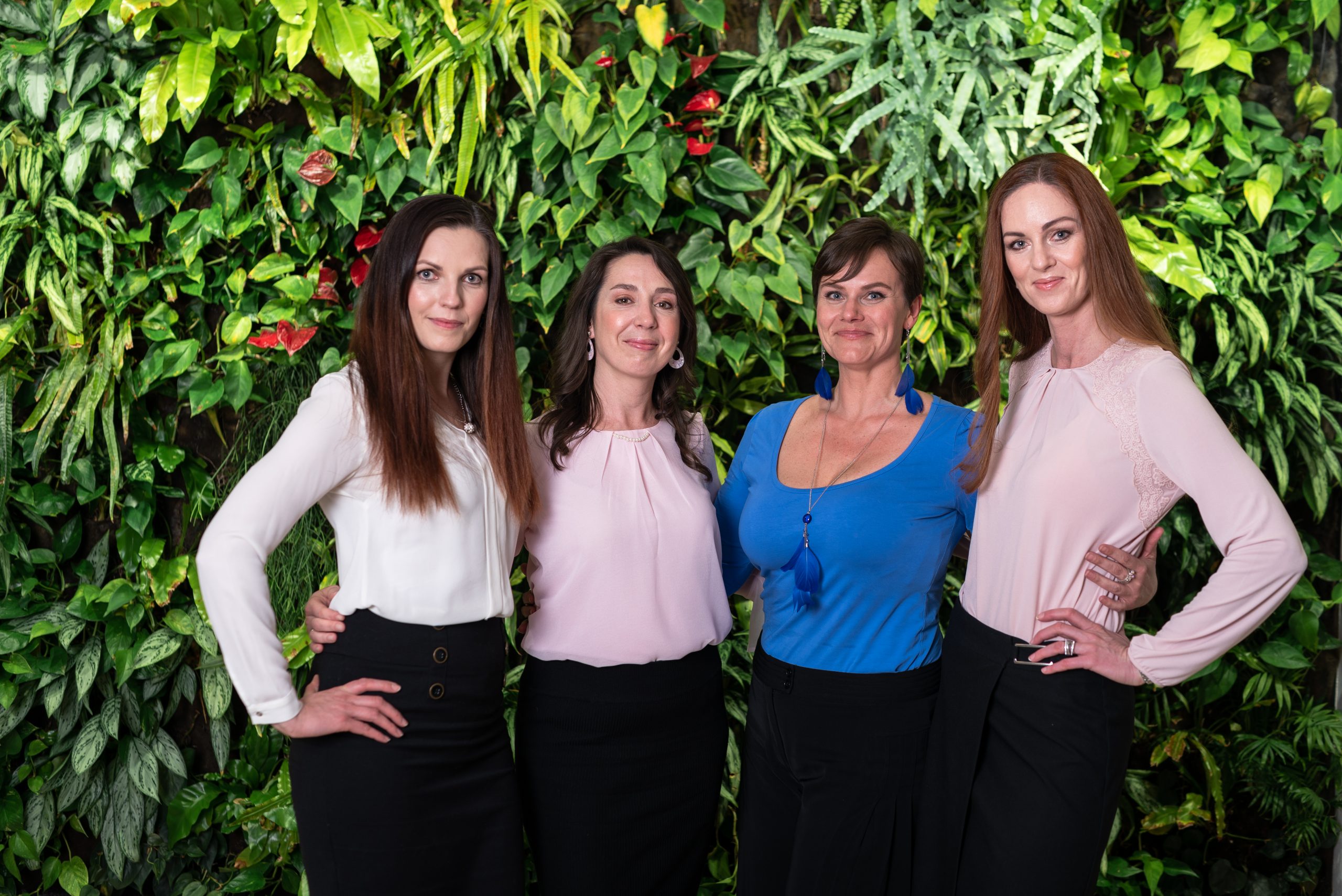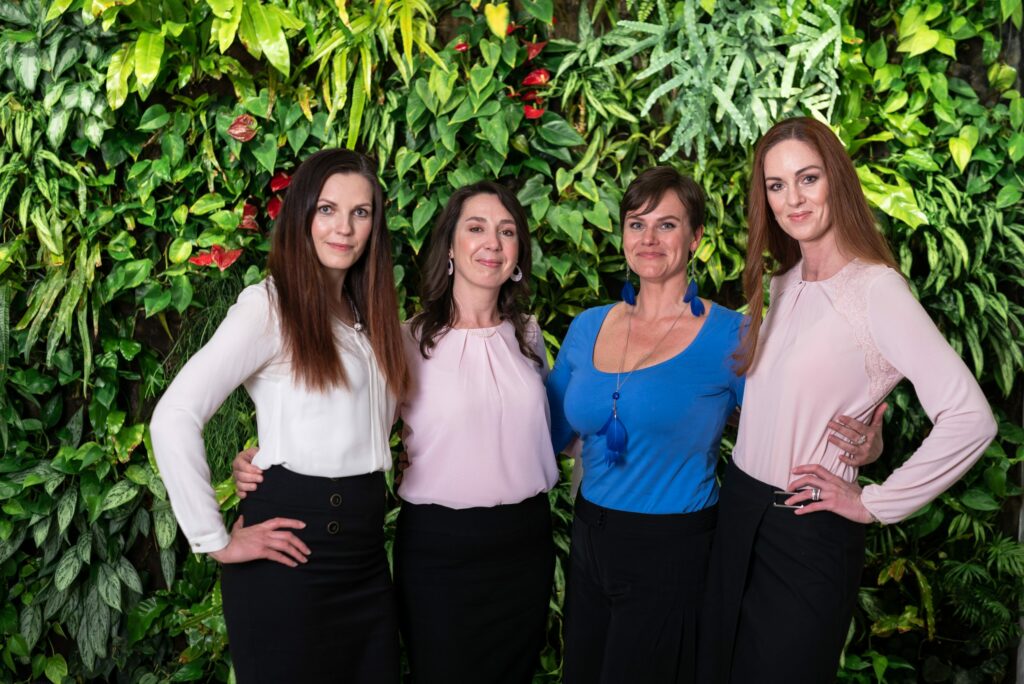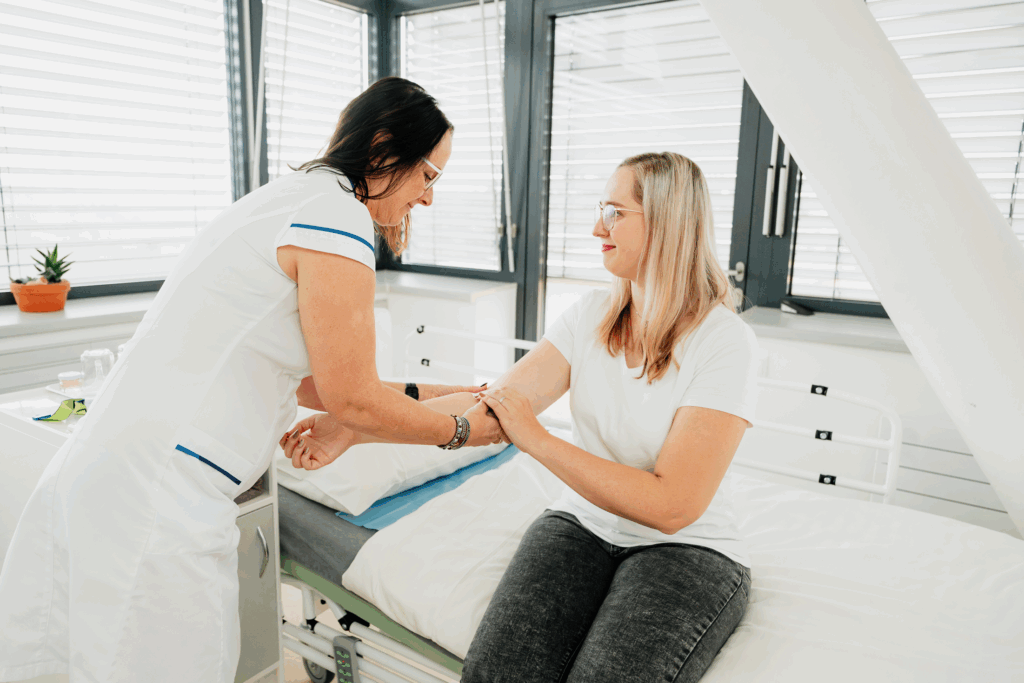They’re often the first person with whom women communicate for assisted reproduction. And also for those who want to donate their eggs, or even those who would like to become surrogate mothers. They guide women and couples through the entire process that is often not very easy. They are their advisor, confidante, and often even the one with whom they share the joy of pregnancy and the dreamed-of baby. That’s the role of the coordinator at our clinic.
After undergoing the initial doctor consultation, each client will come into the care of a coordinator with a specific specialization. Whether you are a woman who has wished for a baby and could not achieve pregnancy for some reason, or a woman who has decided to donate her eggs to an infertile couple. Petra Kleckerová is one for the ten coordinators at our clinic. Although a medical education is not considered necessary for this profession, she is an educated birthing assistant. “I see the fact that I have a focus in the medical field as a certain advantage. Despite the fact that a doctor goes over the health status of the patient with the patient herself or with the couple, I know what’s going on, and I can react accordingly to our patients’ situation,“ says Petra.
Petra Kleckerová is in charge of donor communications with us. As soon as women learn about egg donation perhaps from an advertisement, the clinic hears from a relatively large volume of them. But egg donation isn’t suitable for all of them. “My role is to coordinate the entire process. I am the first communicate with donors with a simple questionnaire. Based on this questionnaire, we can usually decide whether or not donation is suitable. The deciding factor is, for instance, the health status of the patient, their family’s health history, as well as, for instance, their age,” she explains.
Health, however, isn’t just about what you can see at first glance. A diagnosis of a genetic disorder without visible symptoms can sometimes be a huge surprise for the carrier. That’s why one of the next steps is genetic testing. “At Repromeda clinic, we use a specially-developed test called PANDA, which is an acronym for a diagnostic panel analysis. It allows us to discover hundreds of DNA mutations and variations that cause the most common genetic disorders, such as cystic fibrosis or deafness, or those that may have a significant impact on fertility,” the coordinator describes, and adds: “This test can show us whether a woman wishing to donate eggs is healthy or a carrier of a gene that could, with great probability, be the cause of a disease in a child from her egg.”
If the test shows that the woman/donor is the carrier of such a gene, we will not go through with the harvesting or donation. “An indisputable advantage, however, is that if we have to reject a donor for any reason, she will always be informed by one of our doctors of why she can’t donate her eggs. Each interested donor thus gains valuable information about their overall as well as reproductive health, from a hormonal panel to supply of eggs, through, for instance, sexually transmitted diseases,” adds Petra Kleckerová.
Such a discovery isn’t always pleasant, and the testing and egg donation itself or assisted reproduction is often a difficult test of a woman’s psyche. It’s no wonder, then, that a large number of them see their coordinator, who is available to the throughout the entire process, as a person who understands them and to whom they can divulge anything. But it’s not all about sorrows and worries, coordinators also experience joy with their clients. “We part with our expectant mothers when the doctor confirms a heartbeat. That’s approximately around the eighth week of pregnancy. Some women, however, stay in contact with us even throughout their pregnancy and beyond, and they often send us pictures,” says the coordinator.
“Many people have a hard time picturing all the work that the term‘coordinator’ entails.” However, for us, it’s completely clear. We see a versatile individual with excellent communication, organisational, and business skills. A reliable, loyal, and discreet person. A very important component is a pleasant demeanour, because the psychological state of women who undergo assisted reproduction as well as egg donation can be very fragile, and couples need to feel confident that they can trust our coordinators 100%, tell them anything,” explains Repromeda clinic director, Kateřina Veselá.



